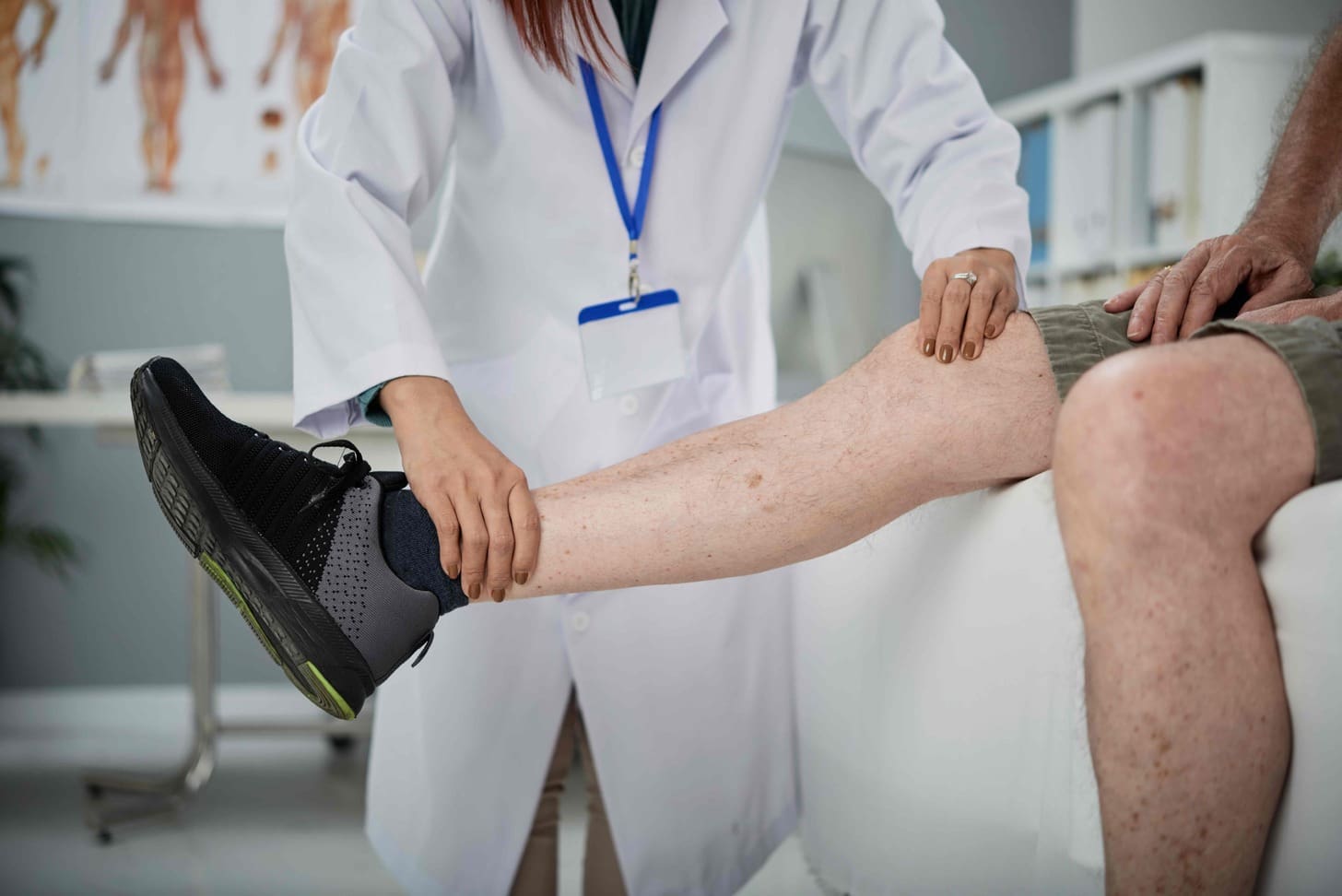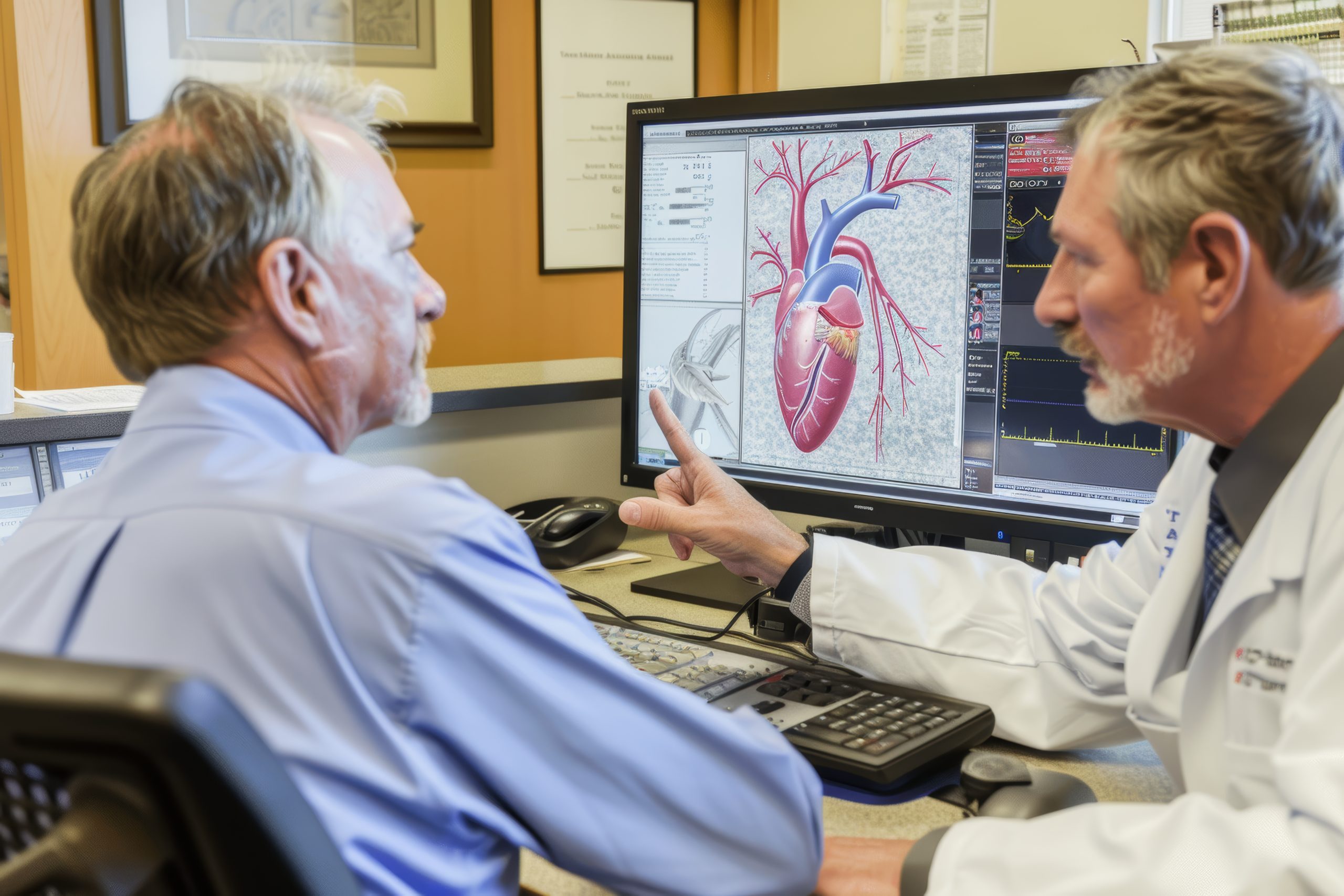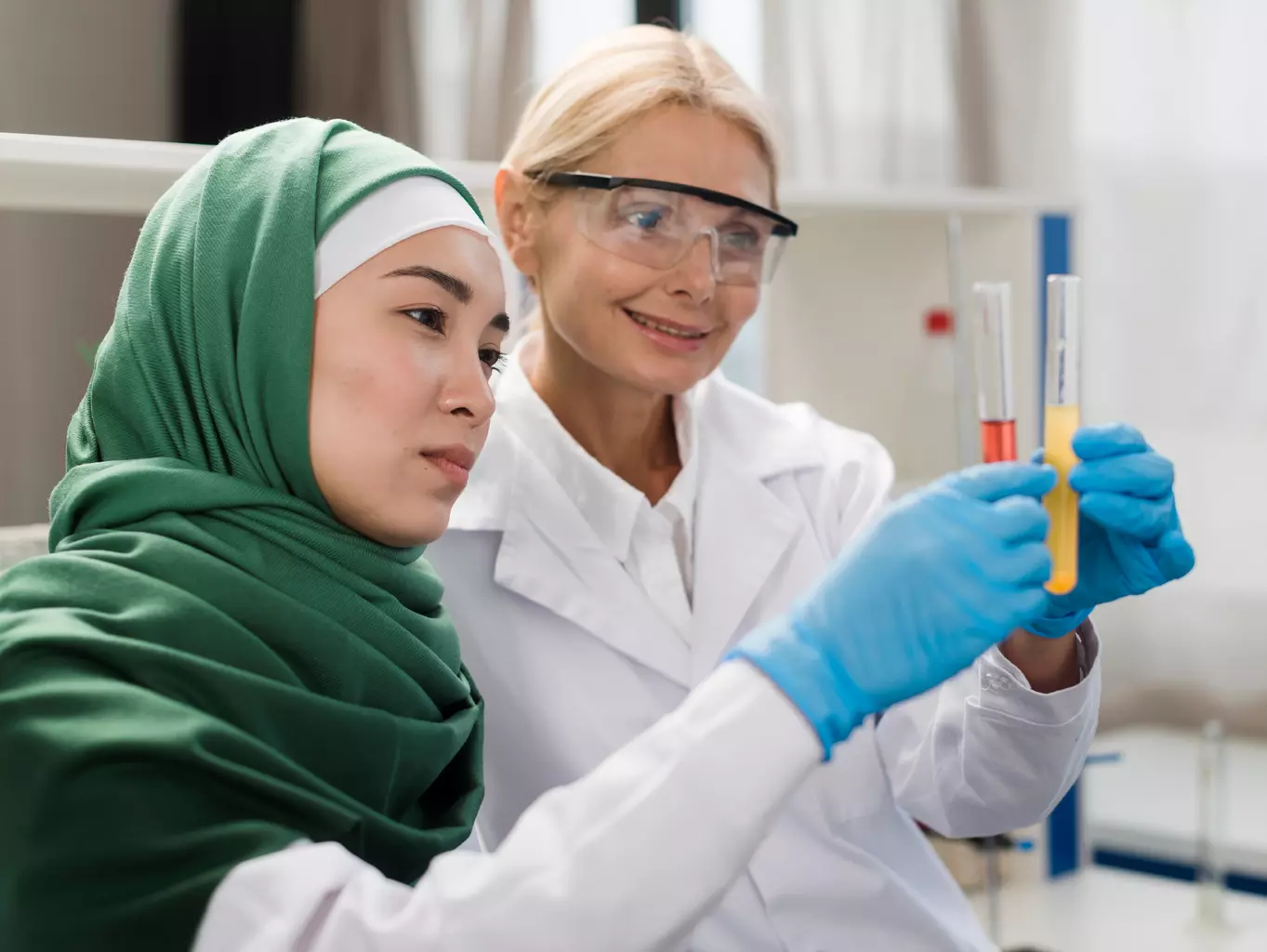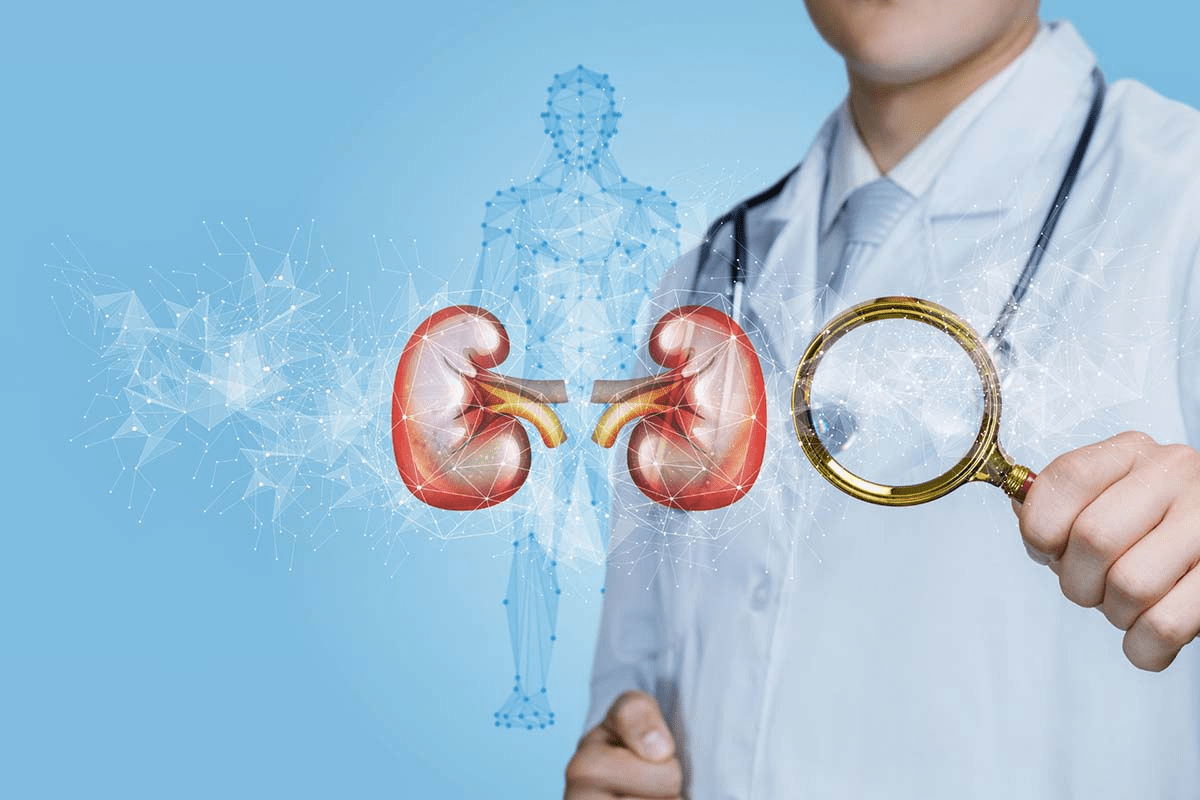Last Updated on November 26, 2025 by Bilal Hasdemir
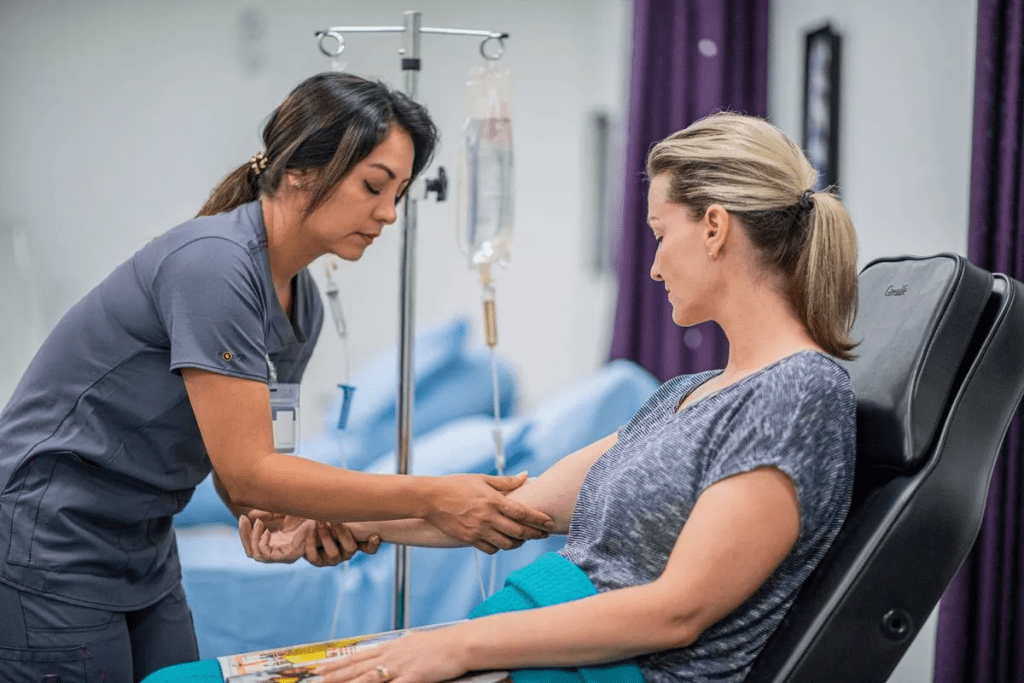
Chemotherapy is a key treatment for many cancers, but it also brings significant challenges and risks. Patients on chemotherapy must know the precautions they need to take to avoid problems.
A study on fertility in women with ovarian tumors shows the importance of knowing the possible harm of chemotherapy on the gonads. This study stresses the need for patients to understand the dietary restrictions they must follow. This is to keep them safe during treatment.
Key Takeaways
- Chemotherapy patients must take specific precautions to avoid complications.
- Dietary restrictions play a key role in reducing risks during chemotherapy.
- Understanding the possible harm of chemotherapy on the gonads is vital.
- Patients should know the chemotherapy foods to avoid to stay safe.
- Following precautions during chemotherapy can greatly affect treatment success.
Understanding Chemotherapy and Its Effects on the Body
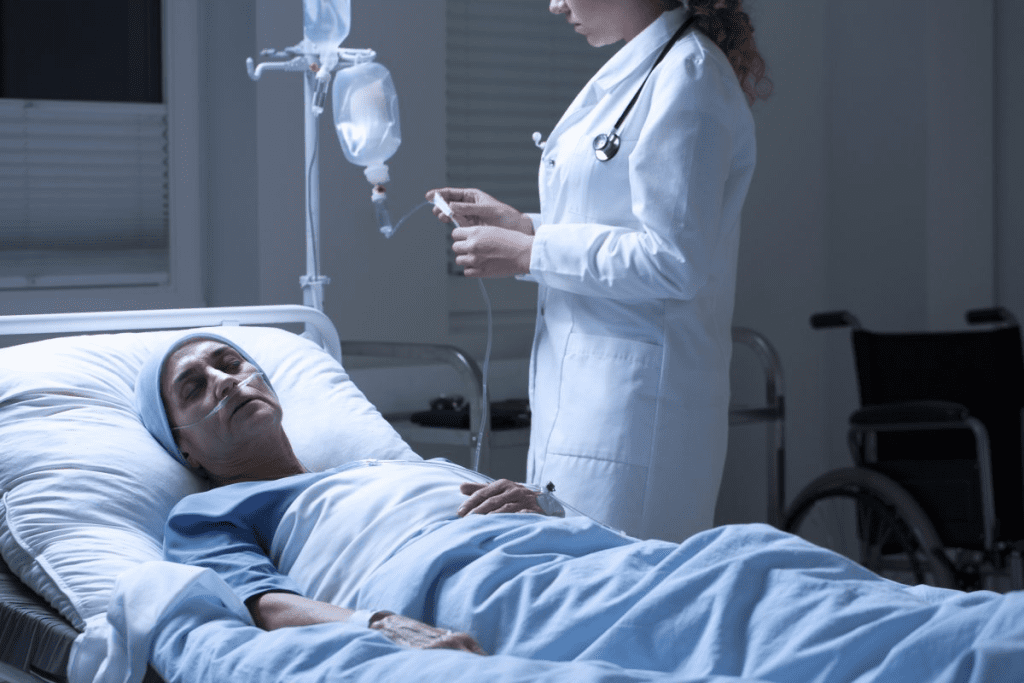
It’s important for patients to know how chemotherapy works and its side effects. Chemotherapy uses drugs to kill cancer cells. It’s a key part of cancer treatment for many types of cancer.
How Chemotherapy Works
Chemotherapy targets cells that grow fast, like cancer cells. The drugs stop these cells from dividing and growing. This helps shrink tumors and slow cancer spread.
The treatment involves cycles of drug doses and recovery times. The drugs and doses depend on the cancer type, stage, and patient’s health.
Common Side Effects of Treatment
Chemotherapy can harm both cancer cells and healthy cells. Side effects include tiredness, nausea, hair loss, and more infections. This is because the drugs affect cells that grow fast, like hair and digestive tract lining.
Managing these side effects is key. Doctors suggest ways to lessen symptoms and improve life quality during treatment.
Why Restrictions Are Necessary
Restrictions during chemotherapy help avoid complications and improve treatment success. For example, avoiding some foods and activities can help manage side effects. This supports the body’s recovery.
Knowing why these restrictions are needed helps patients make better care choices. Following these guidelines can improve treatment results and lower risk of bad effects.
Foods to Avoid While on Chemo
Eating the right foods during chemotherapy is key. But, it’s also important to know which foods to avoid while on chemo to prevent problems.
Some foods can raise the risk of infections or make side effects worse. Knowing these foods helps patients make better food choices.
Raw and Undercooked Foods
Raw and undercooked foods, like meats, eggs, and seafood, can have harmful bacteria. Bacteria like Salmonella and E. coli can cause serious infections in people with weakened immune systems due to chemotherapy.
To lower risks, cook foods well. Avoid raw or undercooked eggs, sushi, and rare meats.
Unwashed Fruits and Vegetables
Fruits and vegetables can have bacteria, pesticides, or other harmful substances. Unwashed produce is a big risk for chemotherapy patients.
Washing all fruits and vegetables under running water before eating is key. Using a vegetable brush can also help remove dirt and bacteria.
Moldy Cheeses and Unpasteurized Dairy
Moldy cheeses, like blue cheese or gorgonzola, and unpasteurized dairy can have harmful bacteria or mold. These are risky for people on chemotherapy.
Choosing pasteurized dairy products and avoiding moldy or strong cheeses can lower infection risks.
Spicy Foods and Cancer Treatment
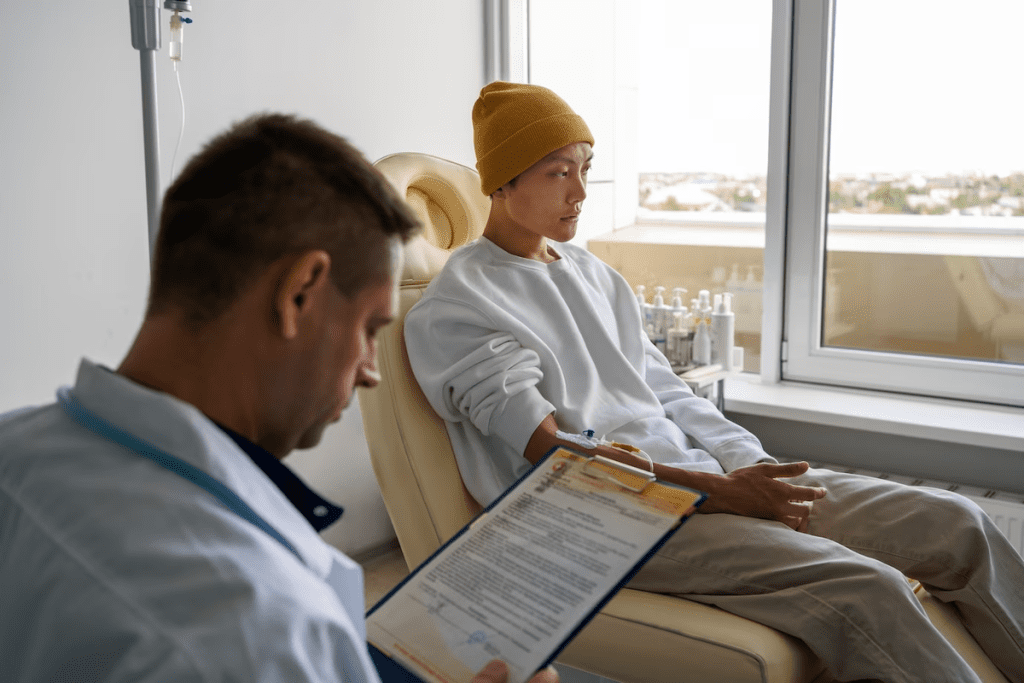
Spicy foods aren’t usually linked to infections. But, they can cause discomfort or heartburn, which is common in chemotherapy patients with mouth sores or digestive issues.
It’s wise for patients to avoid very spicy foods during treatment to avoid discomfort.
Beverages to Restrict During Chemotherapy
When you’re going through chemotherapy, it’s important to watch what you drink. Chemotherapy doesn’t just target cancer cells. It also affects other cells in your body. So, it’s key to choose drinks that help your health.
Why No Cold Drinks During Chemo
Cold drinks might seem okay, but they can be a problem for chemo patients. Chemotherapy can make your mouth and throat more sensitive. Drinking cold things might make this worse, causing pain or discomfort. Also, cold drinks can make blood vessels narrow, which might slow down digestion.
Grapefruit Juice and Medication Interactions
Grapefruit juice can mess with some medications, including chemo drugs. It has compounds that block an enzyme called CYP3A4. This can cause too much of the drug in your blood, raising the risk of side effects or toxicity. If you’re on chemo, talk to your doctor about grapefruit juice or any juice that might interact with your meds.
| Beverage | Potential Risk | Recommendation |
| Grapefruit Juice | Interacts with chemotherapy medications, potentially increasing toxicity | Avoid or consult healthcare provider |
| Cold Drinks | May cause discomfort or reduce blood flow to the stomach | Opt for lukewarm or warm beverages |
| Certain Teas | May interact with chemotherapy drugs or exacerbate side effects | Consult healthcare provider before consumption |
Teas to Avoid During Treatment
Tea is usually a good choice, but some teas aren’t good for chemo patients. Some herbal teas can interact with chemo drugs or make side effects worse. For example, St. John’s Wort tea can mess with many medications. It’s best to check with your doctor before drinking herbal teas.
Being careful about what you drink during chemo can help your treatment go smoother. Always talk to your doctor for advice on what to drink during chemo.
Can You Drink Alcohol While on Chemotherapy?
When you’re on chemotherapy, you might wonder if you can drink alcohol. Chemotherapy uses drugs to kill cancer cells and can cause side effects. It’s important to know if drinking alcohol is safe during this time.
Risks of Combining Alcohol with Chemo Drugs
Drinking alcohol while on chemotherapy can be risky. It can make chemotherapy drugs work less well or cause bad reactions. For example, some drugs can harm the liver, and alcohol can make this worse.
Some possible risks include:
- Increased toxicity
- Enhanced side effects like nausea and fatigue
- Reduced efficacy of chemotherapy
How Long After Chemotherapy Can You Drink Alcohol
When you can safely drink alcohol after chemotherapy depends on several things. These include the type of chemotherapy drugs, how long you’ve been treated, and your health. Always talk to your oncologist for advice that fits your situation.
Usually, doctors tell patients to avoid alcohol during and right after chemotherapy. The time you need to wait can be a few days, weeks, or even months after your last treatment.
Wine, Beer, and Other Alcoholic Beverages
Wine, beer, or other drinks with alcohol can be a concern. Alcohol can interfere with chemotherapy. It’s important to think about the risks before having a drink.
Some drinks, like wine or darker liquors, might have extra ingredients that could be risky.
Talking to Your Oncologist About Alcohol
Talking to your oncologist about alcohol is the best thing to do. They can give you advice based on your treatment and health. Being honest about your drinking habits helps your doctor give you better care.
It’s also key to tell your oncologist about any alcohol-related worries or questions. This conversation is important for your safety and getting the right care while on chemotherapy.
Dietary Guidelines During Chemotherapy
Keeping a balanced diet is key when you’re going through chemotherapy. It helps manage side effects and keeps you healthy. A good diet makes sure you get all the nutrients you need.
Recommended Foods During Treatment
Some foods are great for chemotherapy patients. These include:
- Lean Proteins: Chicken, fish, and eggs help keep you strong.
- Whole Grains: Brown rice, quinoa, and whole wheat bread are full of fiber and nutrients.
- Fruits and Vegetables: A mix of colorful fruits and veggies gives you important vitamins and minerals.
- Nuts and Seeds: Almonds, sunflower seeds, and pumpkin seeds are good for healthy fats and protein.
Best Juices for Chemo Patients
Juices are a great way to get nutrients during chemotherapy. Some good options are:
- Ginger Juice: It helps with nausea.
- Orange Juice: It’s full of vitamin C.
- Beet Juice: It’s good for your health with its nutrients.
- Green Juice: Made from spinach and kale, it’s full of antioxidants.
Managing Taste Changes
Chemotherapy can change how you taste food. To deal with this:
- Choose Mild-Tasting Foods: Pick foods that aren’t too spicy or strongly flavored.
- Experiment with Different Temperatures: Some people find cold foods easier to eat.
- Use Marinades and Seasonings: Add flavor without salt or sugar.
Meal Planning Tips
Good meal planning is important during chemotherapy. Here are some tips:
| Meal Time | Food Suggestions |
| Breakfast | Oatmeal with fruits, yogurt, or scrambled eggs |
| Lunch | Grilled chicken salad, whole grain sandwiches, or soups |
| Dinner | Baked fish with quinoa, steamed vegetables, or lean beef with roasted vegetables |
| Snacks | Nuts, fruits, carrot sticks with hummus, or energy bars |
By following these dietary guidelines, patients can better manage chemotherapy side effects and stay healthy.
Physical Activities to Avoid During Chemo
Knowing which activities to skip during chemotherapy is key for safety. Chemotherapy weakens the body, so it’s important to be careful with how much you do.
Exercise Limitations
Exercise is good, but there are limits during chemo. Strenuous activities can cause fatigue, injury, or other problems. It’s important to listen to your body and not overdo it.
Talk to your healthcare provider about your exercise plans. They can suggest the best activities for your health and treatment.
When to Avoid Strenuous Activities
Avoid strenuous activities when you’re tired, in pain, or have other chemo side effects. This means no heavy lifting, bending, or anything that could hurt you.
If you’re feeling weak or dizzy, rest and skip hard activities. Always check with your healthcare provider for advice on staying active during treatment.
Safe Physical Activities During Treatment
While some activities are too hard, there are safe physical activities for chemo. Gentle exercises like yoga, walking, or light stretching can help you stay flexible and reduce stress.
Choose activities you like and that don’t make side effects worse. Start slow and gradually do more as you get stronger.
Is Sauna Safe for Cancer Patients?
Using a sauna during chemo might not be safe for everyone. It’s usually best to avoid saunas and hot tubs because of dehydration and overheating risks.
Some chemo drugs can mess with your body’s temperature control. Always check with your oncologist before using a sauna during treatment.
Sun Exposure and Skin Care Precautions
Chemotherapy makes your skin more sensitive to the sun. This is why protecting your skin is so important. Patients need to be careful with their skin care and sun exposure to avoid more problems.
Increased Photosensitivity During Treatment
Chemotherapy drugs can make your skin more sensitive to the sun. This can lead to sunburn and other skin reactions. This condition is called photosensitivity.
“Some chemotherapy drugs can cause an increased risk of sunburn and skin reactions due to photosensitivity.”
Source: American Cancer Society
To manage this risk, it’s essential to understand how chemotherapy affects your skin. Taking the right precautions is key.
Skin Care Products to Avoid
Certain skin care products can make your skin more sensitive during chemotherapy. Avoid products with alcohol, fragrances, or harsh exfoliants.
- Products with retinol or retinoids
- Exfoliating products with alpha-hydroxy acids (AHAs) or beta-hydroxy acids (BHAs)
- Products containing fragrances or dyes
Instead, choose gentle, fragrance-free cleansers and moisturizers. These are better for sensitive skin.
Protective Measures for Outdoor Activities
When you go outside, protecting your skin from the sun is critical. Here are some ways to do it:
| Protective Measure | Description |
| Use Sunscreen | Apply a broad-spectrum sunscreen with at least SPF 30. |
| Wear Protective Clothing | Wear long-sleeved shirts, pants, and a wide-brimmed hat. |
| Seek Shade | Whenever possible, stay in the shade, specially during peak sun hours. |
By following these precautions, you can reduce the risks of sun exposure during chemotherapy.
Infection Prevention During Chemotherapy
Keeping infections away is key for those getting chemotherapy. Chemotherapy weakens the immune system, making it easier to get sick. So, it’s important to take steps to avoid infections.
Avoiding Crowds and Sick People
Staying away from crowds and sick people helps a lot. Places with lots of people and poor air can spread germs. It’s best to:
- Avoid crowded spots like malls, events, and busy buses.
- Keep distance from people who are sick, like those with the flu or colds.
- Choose virtual meetings or meet in places with good air if you must socialize.
Hand Hygiene and Mask Recommendations
Keeping hands clean is vital to stop infections. Chemotherapy patients should:
- Wash hands often with soap and water for 20 seconds, after using the bathroom, before eating, and after coughing or sneezing.
- Use hand sanitizer if soap and water are not around.
- Wear a mask when out to lower the chance of breathing in germs.
The CDC says masks help a lot in stopping the spread of viruses.
“Wearing a mask is a simple and effective way to reduce the spread of respiratory illnesses.”
Vaccination Considerations
Vaccines are important in preventing infections. But, chemotherapy patients should talk to their doctor first. This is because live vaccines might not be safe for those with weak immune systems.
| Vaccine Type | Recommendation for Chemotherapy Patients |
| Live Vaccines (e.g., MMR, Varicella) | Generally not recommended due to the risk of vaccine-induced illness. |
| Inactivated Vaccines (e.g., Flu, Pneumococcal) | Recommended; consult with your healthcare provider for the best timing. |
Home Cleaning Precautions
Keeping your home clean is also key. Chemotherapy patients should:
- Regularly clean and disinfect high-touch areas like doorknobs, light switches, and countertops.
- Use a disinfectant that works against many viruses and bacteria.
- Have someone else do tasks that might stir up dust or touch possibly contaminated areas.
By following these tips, chemotherapy patients can lower their risk of getting infections. It’s important to stay informed and work with healthcare providers for the best treatment outcomes.
Special Precautions for Specific Chemo Drugs
Understanding the special precautions for specific chemo drugs is key to their safety and effectiveness. Chemotherapy is a complex treatment. It involves many medications, each with its own side effects and characteristics.
What to Avoid While Taking Capecitabine
Capecitabine is used to treat certain cancers. Patients should not eat grapefruit or grapefruit juice while taking it. This can lead to more side effects. Also, tell your doctor about any other medicines or supplements you’re taking.
Dexamethasone and Chemotherapy Restrictions
Dexamethasone is used with chemotherapy to manage side effects. But, it has its own precautions. Patients should watch for increased blood sugar levels and tell their doctor if they notice any signs of high blood sugar. It can also weaken the immune system, making infections more likely.
Why Can’t You Touch Chemo Pills
It’s important not to touch chemotherapy pills because they can be absorbed through the skin. This can harm those who handle them. Always follow the safety guidelines given by healthcare professionals for handling and disposing of these medications.
Chemotherapy Precautions for Nurses and Caregivers
Nurses and caregivers are vital in chemotherapy treatment. They should wear gloves and masks when handling medications or coming into contact with patients’ fluids. Getting proper training on how to administer chemotherapy safely is important to reduce risks.
Protecting Your Organs During Treatment
When you’re going through chemotherapy, it’s key to protect your vital organs. This includes the liver, kidneys, and heart. Chemotherapy can harm these organs, but you can take steps to lessen the damage.
How to Protect Liver During Chemotherapy
The liver filters toxins from your body, and chemotherapy adds extra stress. To keep your liver safe, follow these tips:
- Avoid alcohol, as it can harm your liver more
- Eat a diet full of fruits, veggies, and whole grains
- Drink lots of water to stay hydrated
- Stay away from toxins and chemicals
Kidney Protection Strategies
Chemotherapy can also harm your kidneys, raising the risk of damage. Here’s how to protect them:
- Drink plenty of water to stay hydrated
- Don’t take NSAIDs, as they can hurt your kidneys
- Keep your blood pressure and sugar levels in check
- Eat a diet low in salt and protein
Heart Health During Cancer Treatment
Chemotherapy can also affect your heart, increasing the risk of heart disease. To protect your heart, try these:
- Eat a diet low in saturated fats and sugar
- Exercise regularly, but check with your doctor first
- Use stress-reducing techniques like meditation or deep breathing
- Watch your blood pressure and cholesterol levels
Hair and Skin Care During Chemotherapy
Chemotherapy can make hair and skin changes, which are hard to deal with. It’s important to take good care of them. This can help manage hair loss and skin changes.
Chemo Haircut Recommendations
Getting a haircut before starting chemo can help with hair loss. A shorter style can put less stress on hair follicles. This might help keep more hair.
Some people choose a bob or pixie cut for easier care during treatment.
Hair Products to Avoid
Stay away from harsh hair products during chemo. Products with sulfates, parabens, and artificial fragrances can harm your hair. Use gentle, sulfate-free shampoos and conditioners instead.
Scalp Care During Hair Loss
Scalp care is key when you’re losing hair. Gently massaging your scalp with a soft brush or scalp massager can help. It increases blood flow.
Using a cooling scalp cap or cold compress can also help. It reduces hair loss by narrowing blood vessels.
Managing Skin Changes
Chemotherapy can make your skin dry, sensitive, and cause rashes. Use gentle, fragrance-free, and hypoallergenic skin care products. Moisturizing often, after bathing, keeps your skin hydrated.
| Skin Care Tip | Benefit |
| Moisturize regularly | Maintains skin hydration |
| Use gentle, fragrance-free products | Reduces irritation risk |
| Avoid harsh exfoliants | Prevents further skin irritation |
By following these hair and skin care tips, patients can manage chemotherapy’s effects better. This improves their comfort and confidence during treatment.
Sexual Activity and Fertility Considerations
Chemotherapy can change how you feel about sex and fertility. It affects your reproductive system and overall sexual health. It’s important to understand these changes.
Can You Have Intercourse During Chemotherapy?
Having sex during chemotherapy is usually okay, but be careful. Talk to your doctor about any risks. They can give you advice based on your situation.
- Use protection to prevent transmission of infections.
- Avoid sexual activity if you have certain side effects like vaginal bleeding or pain.
- Consider the emotional and physical changes that may affect your sexual health.
Fertility Preservation Options
If you’re of reproductive age, think about saving your fertility. There are a few ways to do this:
- Sperm banking for men.
- Embryo freezing for women.
- Egg freezing as an alternative for women not in a partnership or preferring not to use sperm.
- Ovarian tissue freezing, a more experimental method.
Talking to a fertility specialist before starting chemo is key.
Contraception Requirements During Treatment
It’s important to use birth control during chemotherapy. Your doctor can help pick the best method for you. Some options might not work for everyone.
Relieving Distress About Fertility Preservation
Many patients worry about how chemo might affect their fertility. Getting support from counselors, support groups, or online resources can help. It’s a way to talk about your feelings and get advice.
It’s good to explore your feelings and options about saving your fertility. Talking openly with your healthcare team can ease your worries. It helps you make choices that feel right for you.
When to Contact Your Cancer Doctor
Chemotherapy patients need to know when to call their cancer doctor. They might face side effects, some of which can be handled at home. But others need quick medical help.
Warning Signs That Require Immediate Attention
Some symptoms mean you need to see a doctor fast. These include:
- Severe pain or trouble breathing
- Fever over 100.4 °F (38 °C)
- Severe nausea or vomiting that won’t let you keep fluids down
- Signs of infection, like redness, swelling, or pus
- Bleeding or bruising easily
If you see any of these signs, call your cancer doctor right away.
Finding a Cancer Doctor Near Me
Looking for a cancer doctor? Start by asking your primary care doctor for a referral. You can also search online for oncologists in your area. Check their credentials and what patients say about them.
Questions to Ask About Restrictions
It’s important to know the rules of chemotherapy to stay safe. Ask your cancer doctor things like:
- What foods should I avoid during treatment?
- Are there any physical activities I should limit or avoid?
- Can I keep working or going to school during treatment?
- How will I know if I’m having a side effect that needs medical help?
Managing Chemotherapy Treatment Process
Managing chemotherapy well means tracking your treatment, side effects, and any questions. Consider:
- Keeping a treatment diary to log your experiences and symptoms
- Setting reminders for medication and appointments
- Having a support system, like family or friends, to help with daily tasks
Being proactive and informed helps you deal with chemotherapy better.
Conclusion: Navigating Life During Chemotherapy
Life during chemotherapy needs careful planning and knowing what to do and what not to do. Diet is key, with some foods and drinks to avoid to lessen side effects.
Knowing how chemotherapy affects the body and taking steps to protect it can make treatment better. Avoiding raw foods, cutting down on alcohol, and being careful with exercise can help avoid problems.
It’s also important to follow advice on sun safety, preventing infections, and handling hair and skin changes. Being informed and taking action can help those going through chemotherapy. This way, they can manage their treatment better and feel better overall.
In short, dealing with chemotherapy is about making smart choices to help with treatment and reduce side effects. By following these tips, patients can actively participate in their care. This can lead to a successful treatment outcome.
FAQ
What foods should be avoided during chemotherapy?
Avoid raw and undercooked foods, unwashed fruits and veggies, moldy cheeses, and unpasteurized dairy. This helps prevent infections and other issues.
Can I drink alcohol while on chemotherapy?
It’s best to avoid alcohol with chemotherapy. It can mix badly with some meds and make side effects worse. Talk to your oncologist about safe drinking levels.
What beverages should I restrict during chemotherapy?
Stay away from cold drinks, grapefruit juice, and some teas. They can cause discomfort, interact with meds, or worsen side effects.
How can I protect my liver during chemotherapy?
Protect your liver by avoiding too much alcohol, eating healthy, and following your doctor’s liver protection advice.
Can I have intercourse during chemotherapy?
Talk to your oncologist about sex during treatment. Some meds can affect fertility or require birth control.
What are the best juices for chemo patients?
Chemo patients might benefit from juices like pomegranate or green juice. But, always check with your doctor or dietitian first.
Is sauna safe for cancer patients?
Check with your doctor before using a sauna with chemotherapy. It might not be safe for everyone, depending on your health and meds.
How long after chemotherapy can I drink alcohol?
When you can drink alcohol again varies. It depends on your treatment, type of chemo, and other factors. Always ask your oncologist.
What are the precautions for handling chemotherapy medications?
Follow proper handling and disposal for chemo meds. This reduces exposure and prevents accidents for patients, caregivers, and healthcare workers.
How can I manage taste changes during chemotherapy?
Try different foods, flavors, and temperatures to manage taste changes. A registered dietitian can also offer personalized advice.
What are the warning signs that require immediate attention during chemotherapy?
Seek immediate help for severe side effects like trouble breathing, chest pain, or severe bleeding. Also, if you’re worried about your treatment or health.
How can I relieve distress about fertility preservation?
Talk to your oncologist or a fertility specialist about fertility concerns. They can discuss preservation options and offer emotional support.
References
- Centers for Disease Control and Prevention. (2022). Preventing infections in cancer patients. https://www.cancer.gov/about-cancer/treatment/side-effects/infection
- National Cancer Institute. (2021). Fertility issues in girls and women with cancer. https://www.cancer.gov/about-cancer/treatment/side-effects/fertility-women


